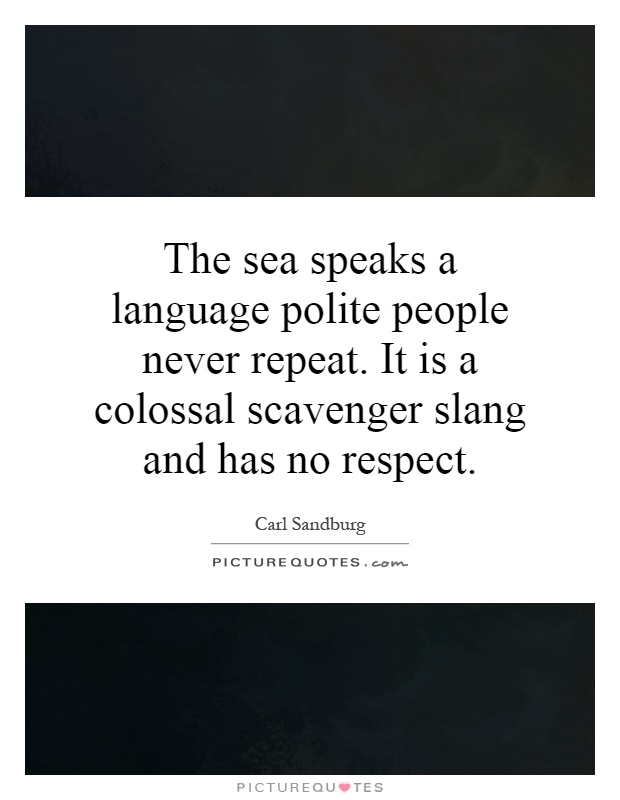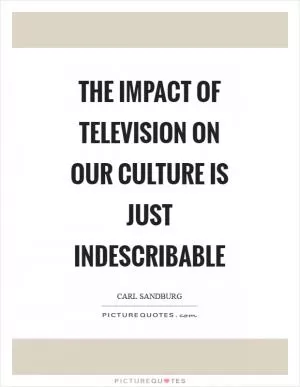The sea speaks a language polite people never repeat. It is a colossal scavenger slang and has no respect

The sea speaks a language polite people never repeat. It is a colossal scavenger slang and has no respect
Carl Sandburg, a renowned American poet, often explored themes of nature, humanity, and the complexities of life in his works. In the quote, “The sea speaks a language polite people never repeat. It is a colossal scavenger slang and has no respect,” Sandburg captures the raw and untamed essence of the sea, highlighting its power and unpredictability.Sandburg’s choice of words in this quote is deliberate and evocative. By describing the sea as speaking a language that polite people never repeat, he suggests that the sea communicates in a primal and unfiltered manner that may be too harsh or uncivilized for polite society. The sea’s language is described as a “colossal scavenger slang,” emphasizing its relentless and voracious nature. The sea is portrayed as a scavenger, constantly seeking and consuming, with no regard for manners or decorum. This imagery conveys the idea that the sea operates on its own terms, following its own rules and instincts without concern for human conventions.
Sandburg’s assertion that the sea has “no respect” further underscores its wild and untamed character. The sea is not bound by human notions of respect or propriety; it exists outside of human control and understanding. This lack of respect can be seen in the sea’s ability to wreak havoc and destruction, as well as its indifference to human concerns and desires. The sea is a force of nature that cannot be tamed or controlled, and Sandburg’s words serve as a reminder of its power and unpredictability.
Overall, Sandburg’s quote captures the awe-inspiring and intimidating presence of the sea, portraying it as a primal and elemental force that defies human comprehension. Through his vivid imagery and evocative language, Sandburg invites readers to contemplate the vastness and mystery of the sea, and to consider the ways in which it both sustains and challenges our understanding of the natural world.












 Friendship Quotes
Friendship Quotes Love Quotes
Love Quotes Life Quotes
Life Quotes Funny Quotes
Funny Quotes Motivational Quotes
Motivational Quotes Inspirational Quotes
Inspirational Quotes